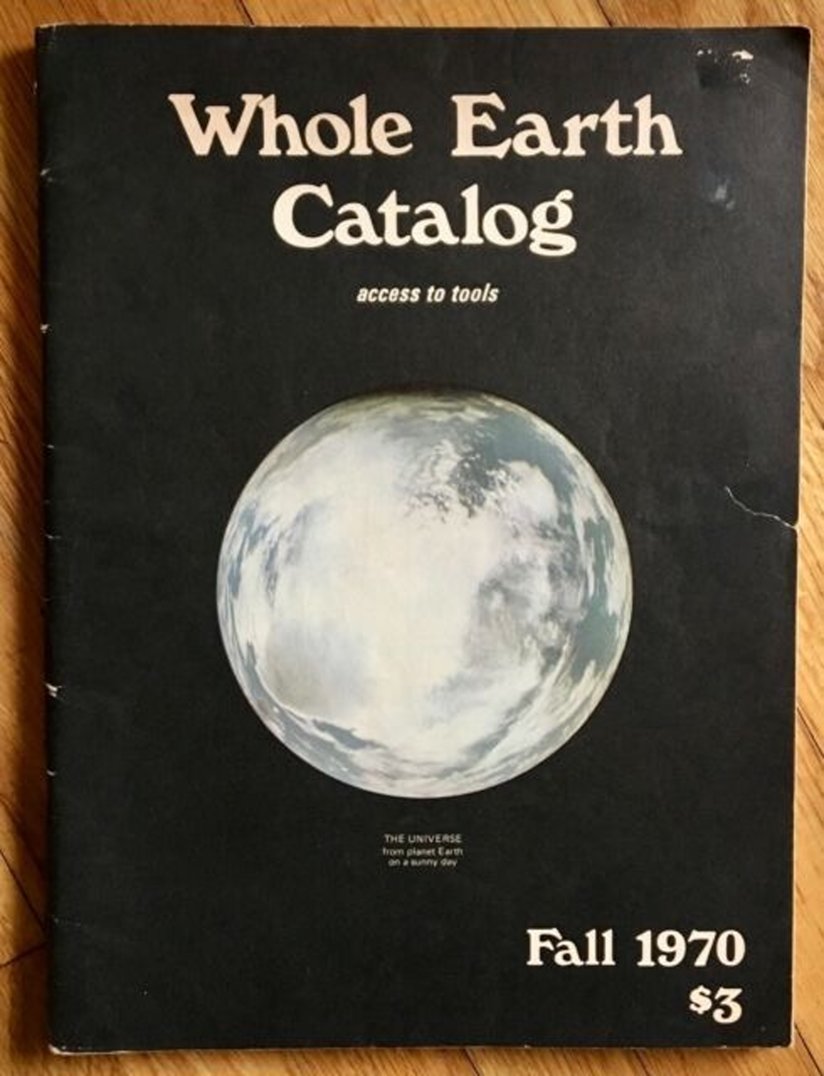
-
HOME
-
WHAT IS STANDOur Mission Our Values Our Help Contact
-
WHAT WE FIGHT FORReligious Freedom Religious Literacy Equality & Human Rights Inclusion & Respect Free Speech Responsible Journalism Corporate Accountability
-
RESOURCESExpert Studies Landmark Decisions White Papers FAQs David Miscavige Religious Freedom Resource Center Freedom of Religion & Human Rights Topic Index Priest-Penitent Privilege Islamophobia
-
HATE MONITORBiased Media Propagandists Hatemongers False Experts Hate Monitor Blog
-
NEWSROOMNews Media Watch Videos Blog
-
TAKE ACTIONCombat Hate & Discrimination Champion Freedom of Religion Demand Accountability
How the Whole Earth Catalog Primed Me for Scientology
A few months ago, I woke up in a motel in Westfield, New Jersey. As I made a cup of absolutely horrible motel-room coffee, I heard—and felt—a click inside my head. Without looking at my watch, I knew that click was accurate to the minute: my personal chronometer had turned over a new year, which meant I was beginning the last solar orbit of a very significant decade of my life.
Now, I happen to agree with Indiana Jones when he said that it’s not the years, it’s the mileage. Still, the last year of a decade gives one pause, and over the next few weeks I found myself reflecting on the years and the mileage, and the path that led me to where I am today.

When I moved from a small town in upstate New York to the San Francisco Bay area at the age of 11, I found myself at the beginning of a cultural revolution. A few miles away, the hippie movement was getting started in the hills above Palo Alto. Although I was oblivious to it in the first couple of years after the move, it became obvious as time went on:
The girl two doors down was a second-generation beatnik. Lindsey Buckingham, later part of Fleetwood Mac, was in a band with some friends of mine. The Grateful Dead played at one of our rec-hall dances. Some of my high-school friends hung out with Ken Kesey on weekends. The mother of another friend spent some time in jail with Joan Baez after a protest demonstration. I read and listened to a lot, including both Dylans: Thomas and Bob.
At the same time, I became fascinated with Eastern religions, and developed an intuitive sense of spirituality.
Exciting times.
Those were the early days of hippiedom, when it was still idealistic and spiritual. That appealed to me.
“We are as gods and might as well get good at it.”
Before the movement went to a drug-hazed hell in the over-hyped “summer of love” in 1967, a lot of the people who were there at the beginning sincerely wanted to build a new civilization based on independent but cooperative action. In mid-1967, the ones who were serious about it left San Francisco and got busy. To assist, a renaissance man named Stewart Brand published the Whole Earth Catalog, which he subtitled Access to Tools. “Tool” was broadly defined: yes, carpentry, farming, and building tools—but also books, maps, specialized clothing, forestry gear, tents, professional journals, early synthesizers, and personal computers. As a base of operations, he opened a storefront in Menlo Park, California. It was packed to the rafters with an amazing variety of stuff, from the ordinary to the arcane.
I spent hours hanging out at the Whole Earth Store. I was fascinated by the enabling bounty stuffed inside those four walls. Access to Tools fired my imagination, but the first sentence of the explanation of the catalog’s purpose inspired me even more: “We are as gods and might as well get good at it.”
That meshed perfectly with my idea that each one of us is—in a sense—a god in that we have free will and the power to create, and that each one of us is a sort of subunit of God. It was the “getting good at it” part on a personal level that had me stumped.
Fast-forward through college which, while educational, was also spiritually stultifying. I was not getting any better at the “it” Stewart talked about. If anything, worse.
A couple years after college I was going through a rough bit in life, and a Scientologist friend read me a short section of Dianetics: The Modern Science of Mental Health that she thought might be relevant.
If we are as gods—and I believe we are—access to these tools and the study and practice of using them effectively is how to get good at it.
It was not only relevant; it looked to be an actually workable tool. It was obvious. It named the problem succinctly and showed how to fix it effectively and in a relatively short amount of time. In contrast, everything I’d been previously exposed to didn’t provide or at least point the way toward practical solutions. The Eastern religions I’d studied had spiritual appeal but the paths seemed long on ambiguity and short on practicality. They weren’t for me. And looking in the materialistic direction, several high-school and college friends went to see psychologists or psychiatrists regularly. One was earnestly counseled into suicide, and as for the rest—the longer they went the crazier they got. That was a no-go. But Dianetics looked like a tool that would actually work. I became very curious.
Thus began what was to become a lifelong study, which branched from Dianetics to Scientology. After spending two-thirds of my life studying and applying these subjects to myself and hundreds of others, I have become intimately familiar with the practicality of what has turned out to be the ultimate mental and spiritual toolbox. A Whole Mind and Spirit Catalog. “Access to tools” indeed.
If we are as gods—and I believe we are—access to these tools and the study and practice of using them effectively is how to get good at it.
That’s the path I took way back in the autumn of 1973: learning to use these tools and apply them to myself and others. Looking back, I must say I’ve gotten rather good at it. And as I look ahead to my next decade in this very challenging world, I expect to get even better.









